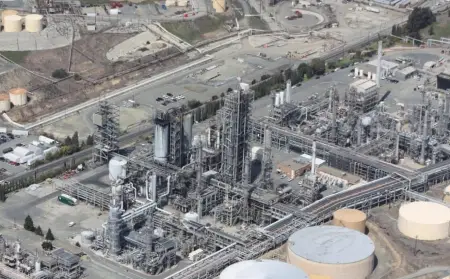
What is PSM?
The term PSM stands for Process Safety Management. Process Safety Management is a program used for preventing the release of highly hazardous chemicals. These chemicals include any liquids or gases that are toxic, reactive, explosive, or highly flammable. PSM is important to every industry, regardless of whether they use hazardous chemicals.
Despite this, Process Safety Management normally applies to manufacturing industries. Especially industries that are involved with transportation equipment, hazardous chemicals, and those that fabricate metal products. It also applies specifically to pyrotechnics and explosives manufacturers. Other industries may include:
- Natural liquid gas
- Farm product warehousing
- Electric and gas
- Sanitary services
- Wholesale trade
The Key Elements
According to regulations, PSM has 14 key elements. The first and most important one being Process Hazard Analysis, or PHA. Process Hazard Analysis is a careful review of everything that could possibly go wrong and what safeguards must be implemented to prevent any releases of hazardous chemicals. Employers must identify the possible hazards that pose the greatest risk and evaluate them before the others. PHA provides a strong method of identifying problems that could lead to massive incidents. Many federal groups such as EPA agrees and follows PSM standards.
Consider programs used by departments such as the American National Standards Institute. When the standards are compared, they follow closely to the process safety management elements. The other 13 elements are also key to conducting a safe process hazard analysis. We will inform and break down the general meaning.
- Process safety information – This refers to accurate and proper information about the processes, equipment, and technology involved.
- Operating procedures – Employers must develop and put in place written operating procedures, that fits with the process safety information
- Employee participation – Employers must also create a written plan for their employee’s participation, this is required by PSM
- Training – Employers are to ensure that their employees participate in an effective training program which should include operation procedures
- Contractors – Any contractors involved whether it be due to them doing maintenance, repairs, renovation, or special works should also be trained on emergency procedures
- Prestart up safety review – This is a requirement to perform for new or modified facilities
- Mechanical integrity – This is the management of critical process equipment to ensure it is designed and installed properly
- Hot work – a permit must be issued for hot work operations. This includes welding, flame cutting and other fire producing operations.
- Management of change – Any changes made to a process must be evaluated to assess the impact they will have on employee health and safety
- Incident investigation – a thorough investigation of incidents is required so causes can be determined and preventive actions for the future can be taken
- Emergency planning and response – Emergency preplanning and training is essential in making employees aware of proper actions and how to execute them correctly and safely
- alignment audits – Audits must be conducted, and the findings of the audits should be reported and documented
- Trade secrets – Employers must provide all information necessary to adhere with PSM regardless of the trade status of the information
Conclusion
Process Safety Management Programs are put in place to keep people safe in the workplace. These elements exist to ensure the program runs smoothly and that any and all precautions are taken. For more information and trainings go to Hard Hat Training Series!
